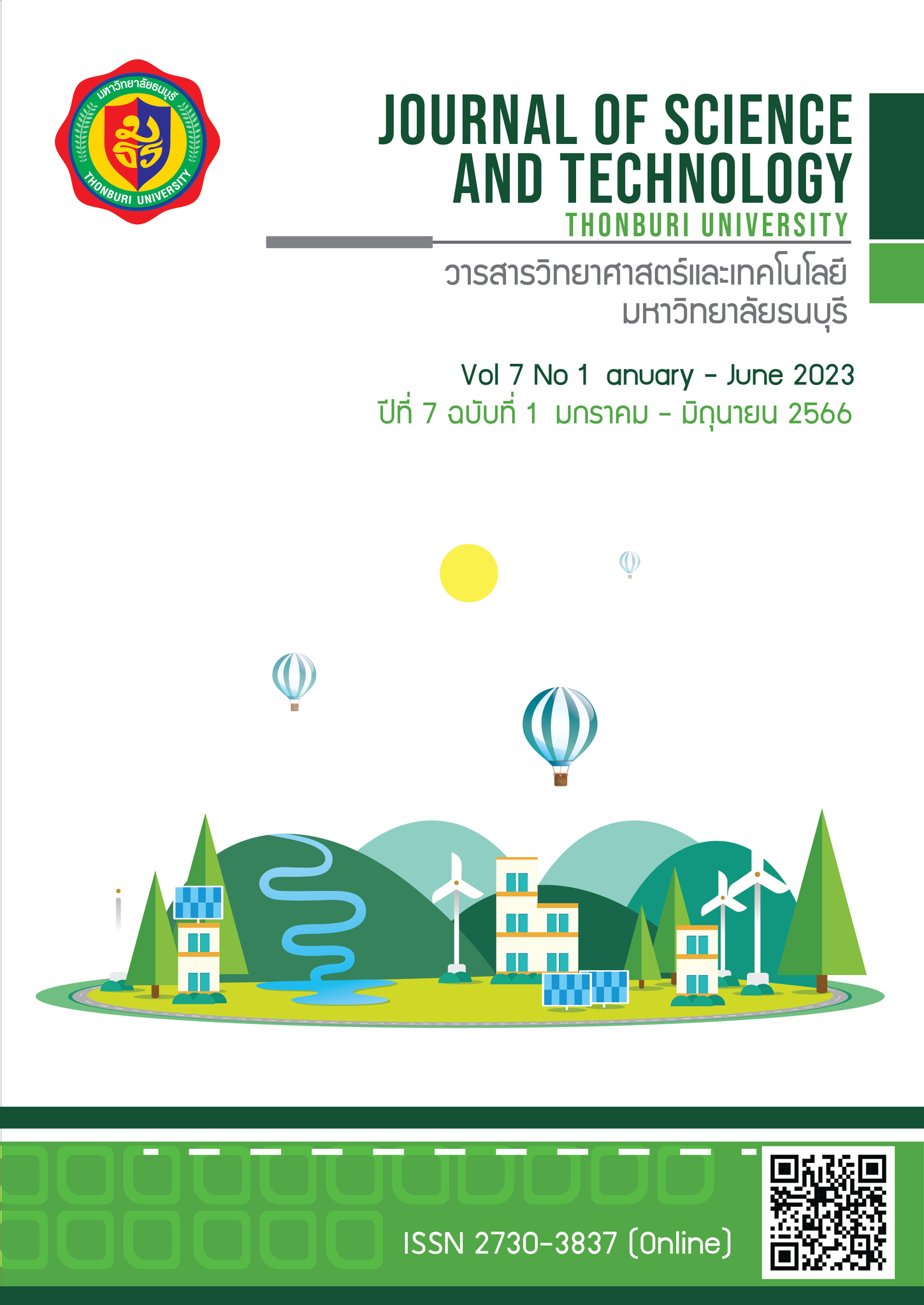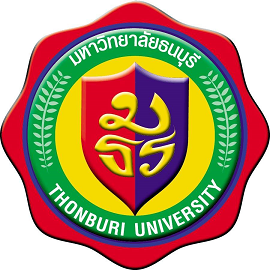การสร้างความเข้มแข็งให้กับความสามารถในการแข่งขันของประเทศไทย ด้วยการจัดการโลจิสติกส์
คำสำคัญ:
การจัดการโลจิสติกส์, การจัดการห่วงโซ่อุปทาน, ความสามารถในการแข่งขันของประเทศไทยบทคัดย่อ
การจัดการโลจิสติกส์เป็นกระบวนการและกิจกรรมที่รับรองว่าคุณค่าที่ถูกต้องถูกส่งไปยังลูกค้าที่ถูกต้องในสถานที่ที่ถูกต้องและเวลาที่ถูกต้องด้วยต้นทุนที่ต่ำที่สุด ยิ่งไปกว่านั้นการจัดการโลจิสติกส์ยังสามารถสนับสนุนองค์กรให้ใช้ประโยชน์ในสินทรัพย์ได้อย่างมีประสิทธิภาพและก่อให้เกิดรายได้ที่มากขึ้น ในสภาวะปัจจุบัน หลายบริษัทได้เพิ่มบทบาทที่สำคัญของตนในด้านห่วงโซ่อุปทานทั้งระดับภูมิภาคและระดับนานาชาติ อย่างไรก็ตามการพัฒนาระบบโลจิสติกส์ของไทยยังอยู่ในระดับที่ต่ำกว่าประเทศอื่นๆ จุดมุ่งหมายของบทความชิ้นนี้คือการสืบค้นพัฒนาการของระบบโลจิสติกส์และความเกี่ยวข้องจากทั้งภาครัฐและภาคเอกชน ดังนั้นประโยชน์ที่คาดว่าจะได้รับจากบทความนี้คือการที่จะทำให้แน่ใจได้ว่านโยบายของชาติจะสอดคล้องต้องกันกับขีดความสามารถและเป้าหมายเชิงกลยุทธ์ของบริษัท เอกชนและรัฐบาลต้องร่วมมือกันในการปรับปรุงสมรรถนะของโลจิสติกส์ให้ดีขึ้น ทั้งนี้ความร่วมมือที่จะเกิดขึ้นระหว่างภาครัฐและเอกชนเป็นนิมิตหมายที่ดีสำหรับอนาคตของการพัฒนาระบบโลจิสติกส์ ซึ่งจะช่วยสร้างความเข้มแข็งให้กับความสามารถในการแข่งขันของประเทศไทย
เอกสารอ้างอิง
Asian Pacific Logistics Federation. (2021). TFL (Thai Federation on Logistics). Retrieved fromhttp://www.aplf.net/content/ 05_Members/01_10_tfl.asp
Basnet, C., Corner, J., Wisner, J., & Tan, K.C. (2003). Benchmarking supply chain management practice in New Zealand. Supply Chain Management: An International Journal, 8 (1), 57-64.
Cavinato, J.L. (1982). The Traffic Service Corporation. Washington, D.C: Traffic Service Corp.
Fernie, J. (1995). International comparisons of supply chain management in grocery retailing. Service Industries Journal, 815 (4), 134-147.
Goh, M. & Pinaikul, P. (1998). Logistics management practices and development in Thailand. Logistics Information Management, 11 (6), 359-369.
H. Kotzab, S. Seuring, M. Müller, & G. Reiner. (2005). (eds.) Research Methodologies in Supply Chain Management. Heidelberg: Physica-Verlag.
Kwan, A.T.W. (1999). The use of information technology to enhance supply chain management in the electronics and chemical industries. Production & Inventory Management Journal, 40 (3), pp. 7- 15.
Laosirihongthong, T. & Dangayach, G.S. (2005). New manufacturing technology implementation: a study of the Thai automotive industry. Production Planning & Control, 16 (3), 263-272.
Lummus, R.R., Krumwiede, D.W. & Vokurka, R.J. (2001). The relationship of logistics to supply chain management: developing a common industry definition. Industrial Management & Data Systems, 101 (8), pp. 426-432.
Luttwak, E. (1971). A Dictionary of Modern War, New York: Harper & Row.
McMullan, A. (1996). Supply chain management practices in Asia Pacific today. International Journal of Physical Distribution & Logistics Management, 26 (10), 79-95.
Quayle, M. A (2003). Study of supply chain management practice in UK industrial SMEs. Supply Chain Management: An International Journal, 8 (1), 79-86.
Sahay, B.S., & Mohan R. (2003). Supply chain management practices in Indian industry. International Journal of Physical Distribution & Logistics Management, 33 (7), 582-606.
Settakaset, P. & Basnet, C. (2005). Third party logistics in Thailand - from the user’s perspective.
Somchikulsub, S. (2005). Logistics Development in Thailand. Logistics Digest Magazine, 1 (1), 44-45.
Tan, K.C., Kannan, V.R., & Handfield, R.B. (1998). Supply chain management: supplier performance and firm performance. International Journal of Purchasing & Materials Management, 34 (3), 2-9.
Thai Federation on Logistics. (2021). History of Thai Federation on Logistics. Retrieved from http://www.thailog.org/en/about-us.html [Accessed 10th December 2021].
The Council of Supply chain Management Professionals. (2022). CSCMP’s Definition of Logistics Management. Retrieved from https://cscmp.org/CSCMP/Educate/SCM_Definitions_and_Glossary_of_Terms.aspx
The Office of the National Economic and Social Development Council. (2008). Thailand: Logistics Report 2007, Bangkok: Office of the National Economic and Social Development Board.
The Office of the National Economic and Social Development Council. (2022). Thailand’s Logistics Report 2020, Retrieved from https://www.nesdc.go.th/ewt_dl_link.php?nid=11975
The Office of the National Economics and Social Development Council. (2022). The Third Thailand Logistics Development Plan (2017-2022). Retrieved from https://www.nesdc.go.th/ download/document/logistic/The%20Third%20Thailand%20Logistics%20Development%20Plan.p df
Udomleartprasert, P. (2006). Enhancing the Company Competitiveness through Supply Chain Management. 2006 IEEE International conference on Management of Innovation and Technology, 901-905.
ดาวน์โหลด
เผยแพร่แล้ว
รูปแบบการอ้างอิง
ฉบับ
ประเภทบทความ
สัญญาอนุญาต

อนุญาตภายใต้เงื่อนไข Creative Commons Attribution-NonCommercial-NoDerivatives 4.0 International License.




